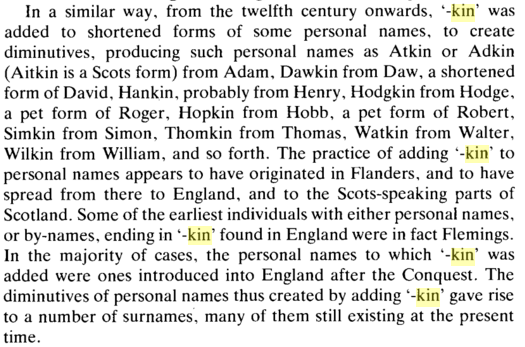The word "honeykins" uses two suffixes to make it more endearing: "-kin" and "-s".
-kin is an English suffix that was used in the olden days to form diminutive forms of nouns. There are still several dozen words in the language that were formed using this suffix. The more known are pumpkin, catkin, napkin, the less known are ladykin, pannikin.
It has a curious etymology, let me quote from Wiktionary:
See - it's Germanic in origin: compare with German "Mädchen", "a girl". It is composed of the root "Madg", "female servant", and the diminutive suffix "-chen".
Another interesting bit, from "A History of British Surnames" by Richard McKinley, page 100:
It turns out Richard Dawkins has this suffix too! Live and learn.
The linguistic term for a diminutive, endearing calling name is hypocorism.
According to Wiktionary, the suffix -s has 5 meanings, and one of them is hypocoristic:
Diminutive suffix:
Babs; moms; pops; homes; Toots
In the "Cambridge Grammar of the English Language" by Huddleston and Pullum, both "-kin" and "-s" are mentioned in Unit 5.2.1 "Evaluative morphology: Diminutives":
The suffix -s also occurs after diminutive -ie in such playground words as onesies, twosies, widesies: it is doubtful whether it is here marking plural number. In addition it is found in various terms of address, such as ducks or Pops.


